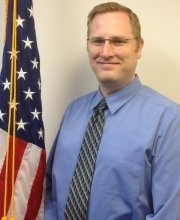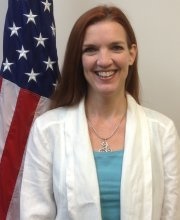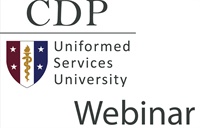Assessing Military Clients for Trauma and Post-Traumatic Stress Disorder
- Average Rating:
- Not yet rated
- Categories:
- PTSD | Trauma
- Faculty:
- Kevin Holloway | Kelly Chrestman, Ph.D.
- Course Levels:
- Introductory
- Duration:
- 4 Hours 15 Minutes
- Media Type:
- Webinar
- License:
- Access for event date only.
Tags: Assessment PTSD
Description
This workshop will review a method for screening, assessment, and treatment outcome monitoring of Posttraumatic Stress Disorder (PTSD) centered on the use of the PTSD Checklist for DSM-5 (PCL5). Participants will be introduced to VA/DOD best practices for diagnosing military-related PTSD including screening for trauma-related disorders, obtaining thorough military and trauma histories, conducting a semi-structured diagnostic interview, and using self-report measures to track treatment outcome. DSM-5 diagnostic criteria for PTSD as well as Other Unspecified Specified Trauma and/or Stressor Related Disorders are reviewed. Tools for assessing PTSD and common comorbid conditions are discussed including appropriate use of the PCL 5, Life Events Checklist 5 (LEC 5), Patient Health Questionnaire-9 (PHQ-9), and Alcohol Use Disorders Identification Test-Consumption Questions (AUDIT-C). Semi-structured clinical interviewing techniques are reviewed and then practiced by participants for the intended purposes of screening, diagnostic assessment, and tracking treatment outcome. Unique variables that can impact the assessment and feedback process with a military population are identified. Role-plays and demonstrations will be used to help develop participants’ PTSD assessment skills.
Learning Objectives:
- Apply the VA/DOD Guidelines for the Assessment of Trauma and PTSD.
- Discriminate between symptoms of PTSD and other disorders based on the DSM-5.
- Integrate appropriate measures into the screening, diagnostic assessment, and tracking of treatment outcomes in PTSD patients
CE Information:
American Psychological Association Sponsor Approval:
The Center for Deployment Psychology is approved by the American Psychological Association to sponsor continuing education for psychologists. The Center for Deployment Psychology maintains responsibility for this program and its content.
Association of Social Work Boards Approved Continuing Education Provider Approval:
The Center for Deployment Psychology, #1761, is approved to offer social work continuing education by the Association of Social Work Boards (ASWB) Approved Continuing Education (ACE) program. Organizations, not individual courses, are approved as ACE providers. State and provincial regulatory boards have the final authority to determine whether an individual course may be accepted for continuing education credit. The Center for Deployment Psychology maintains responsibility for this course. ACE provider approval period: May 19, 2022 – May 19, 2025. Social workers completing this course receive 4 Live, Interactive Webinar continuing education credits.
New York State Education Department’s State Board for Psychology Provider Approval:
The Center for Deployment Psychology is recognized by the New York State Education Department's State Board for Psychology as an approved provider of continuing education for licensed psychologists (#PSY-0178).
Credits
Handouts
| Handouts (1.9 MB) | Available after Purchase | ||
| Slides (2.9 MB) | Available after Purchase | ||
Faculty

Kevin Holloway Related Seminars and Products
Center for Deployment Psychology
Kevin M. Holloway, Ph.D. is a licensed clinical psychologist working as the Director of Online Programs at the Center for Deployment Psychology (CDP) at the Uniformed Services University of the Health Sciences in Bethesda, Maryland. In this capacity, he leads a team of mental health subject matter experts and technology experts to develop and disseminate technology solutions to improve access to and quality of professional training. Additionally, he develops and presents workshops across the country to military and civilian audiences on topics in deployment behavioral health and evidence-based therapies for PTSD.
Speaker Disclosures:
Financial: Kevin Holloway has an employment relationship with Center for Deployment Psychology.
Nonfinancial: Kevin Holloway has no relevant nonfinancial relationship to disclose.

Kelly Chrestman, Ph.D. Related Seminars and Products
Senior Military Behavioral Health Psychologist
Center for Deployment Psychology
Kelly Chrestman, Ph.D., is a licensed clinical psychologist working as the lead for online consultation services at the Center for Deployment Psychology (CDP) at the Uniformed Services University of the Health Sciences in Bethesda, Maryland. In this capacity, she is responsible for the development of the CDP’s web based consultation services to DoD and military mental health providers.
Dr. Chrestman received her Bachelor of Arts degree from Rhodes College, Memphis, Tennessee and her Master of Arts and Doctor of Psychology degrees from Nova Southeastern University. She completed a clinical psychology internship at the University of Mississippi, Jackson VA Medical Center Consortium and postdoctoral training at the Women’s Health Sciences Division of the National Center for PTSD,Boston, Massachusetts. Prior to joining the CDP, she was a research scientist at Behavioral Tech Research, Inc. and a clinical psychologist at the Center for the Treatment and Study of Anxiety at the University of Pennsylvania.
As a clinical and research psychologist, much of Dr. Chrestman’s work has focused on trauma, violence and anxiety. She is particularly interested in the dissemination of empirically supported treatments, and using technology to improve the accessibility of treatment and training in community settings. She has trained numerous student and mental health professionals from the United States and other countries in techniques for treating PTSD and other anxiety disorders.
Dr. Chrestman is a co-author of Prolonged Exposure Therapy for Adolescents with PTSD: Emotional Processing of Traumatic Experiences (2008) and has authored several articles on community and professional responses to trauma, particularly domestic violence and sexual assault.


